Chapter 8: Outlining BCM Planning Methodology for KidSTART

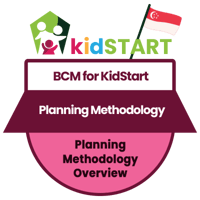 This chapter outlines a structured and comprehensive BCM planning methodology for implementing a robust BCMS within KidSTART Singapore.
This chapter outlines a structured and comprehensive BCM planning methodology for implementing a robust BCMS within KidSTART Singapore.
This methodology provides a clear roadmap for the organisation to effectively identify, assess, and mitigate risks, ensuring the continued delivery of essential services to vulnerable children and families. The BCM planning methodology encompasses interconnected phases: Project Management, Risk Analysis and Review, Business Impact Analysis, Business Continuity Strategy Development, Plan Development, Testing and Exercising, and Program Management.
The BCM planning methodology encompasses interconnected phases: Project Management, Risk Analysis and Review, Business Impact Analysis, Business Continuity Strategy Development, Plan Development, Testing and Exercising, and Program Management.
This phased approach ensures a systematic and thorough evaluation of the organisation's vulnerabilities, developing effective mitigation strategies, and maintaining and improving the BCMS.
This document outlines a seven-phase BCM planning methodology for implementing an effective BCMS tailored to KidSTART's specific needs and context.
Project Management (PM)
- Establish clear project objectives, timelines, and resource allocation for the BCM implementation process.
- Appoint a project manager and a cross-functional BCM team.
- Develop a communication plan to keep stakeholders informed throughout the project.
Risk Analysis and Review (RAR)
- Identify potential threats to KidSTART's operations, such as natural disasters, pandemics, cyberattacks, and economic disruptions.
- Assess the likelihood and potential impact of each threat.
- Prioritise risks based on their severity and potential impact on critical functions.
Business Impact Analysis (BIA)
- Identify and prioritise critical business functions like service delivery, financial management, and human resources.
- Analyse the potential impact of disruptions on each critical function, considering factors such as financial losses, reputational damage, and service disruptions.
- Determine Recovery Time Objectives (RTOs) and Recovery Point Objectives (RPOs) for each critical function.
Business Continuity Strategy (BCS)
- Develop mitigation, prevention, and recovery strategies for each critical business function.
- Explore alternative service delivery models like tele-counselling, home visits, and online learning platforms.
- Strengthen partnerships with community organisations to provide alternative service locations and support.
Plan Development (PD)
- Create detailed BCM Plans for each critical function and potential disruption scenario.
- Outline specific procedures and actions to be taken during and after a disruptive event.
- Allocate necessary resources, including personnel, equipment, and funding.
- Clearly define roles and responsibilities for all personnel involved in the implementation and execution of the BC Plans.
Testing and Exercising (TE)
- Conduct tests and exercises to evaluate the BC Plans' effectiveness.
- Start with basic tests, such as component tests, call notification tests, and walkthrough exercises.
- Progress to more advanced tests, such as integrated tests, simulation tests, simulation
- Regularly review and update BCM Plans based on the findings of testing and exercising activities.
Program Management (PgM)
- Regularly review, update, and maintain all BCM Plans to reflect changes in the internal and external environment.
- Conduct ongoing monitoring and evaluation of the BCMS.
- Implement a process for continuous improvement of the BCMS.
- Foster a culture of preparedness and resilience throughout the organisation.
- Ensure compliance with all relevant legal and regulatory requirements related to BCM.
Summing Up ...
This chapter outlines a structured and comprehensive seven-phase BCM planning methodology for implementing a robust BCMS within KidSTART.
This methodology encompasses Project Management, Risk Analysis and Review, Business Impact Analysis, Business Continuity Strategy Development, Plan Development, Testing and Exercising, and Program Management.
This seven-phased approach ensures a systematic evaluation of vulnerabilities, the development of effective mitigation strategies, and the ongoing maintenance and improvement of the BCMS, ultimately providing the continued delivery of essential services to vulnerable children and families.
By implementing this seven-phase methodology, KidSTART can develop and maintain a robust BCMS that effectively mitigates risks, ensures the continuity of essential services, and protects the well-being of the children and families it serves.
This methodology provides a comprehensive framework for KidSTART to build resilience, adapt to unforeseen challenges, and continue to fulfil its vital mission of supporting early childhood development.
More Information About Business Continuity Management Courses

 To learn more about the course and schedule, click the buttons below for the BCM-300 Business Continuity Management Implementer [B-3] course and the BCM-5000 Business Continuity Management Expert Implementer [B-5].
To learn more about the course and schedule, click the buttons below for the BCM-300 Business Continuity Management Implementer [B-3] course and the BCM-5000 Business Continuity Management Expert Implementer [B-5].
![Register [BL-B-3]*](https://no-cache.hubspot.com/cta/default/3893111/ac6cf073-4cdd-4541-91ed-889f731d5076.png) |
 |
 |
 |
 |
 |
![FAQ [BL-B-3]](https://no-cache.hubspot.com/cta/default/3893111/b3824ba1-7aa1-4eb6-bef8-94f57121c5ae.png) |
If you have any questions, click to contact us.
|
 |
 |
 |
 |


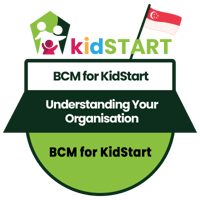
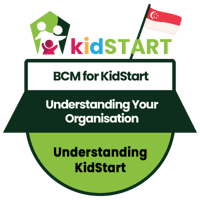
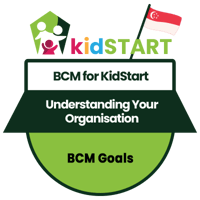
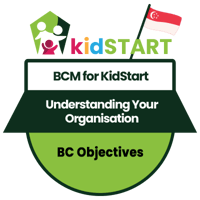
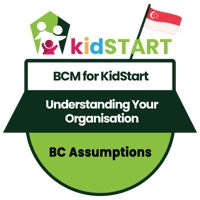
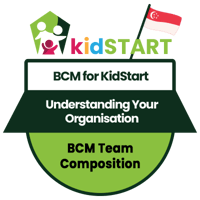
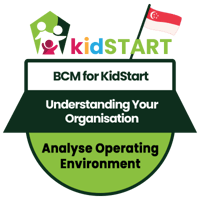
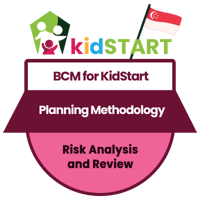
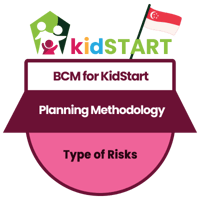
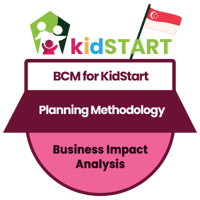
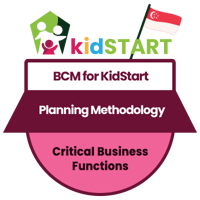
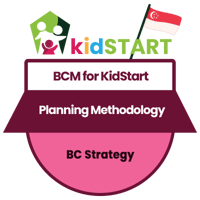
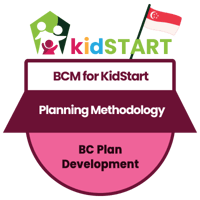
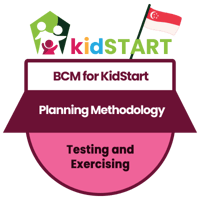
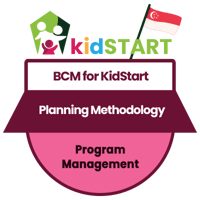
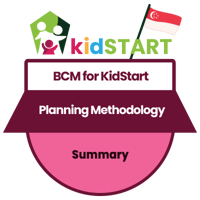
![Email to Sales Team [BCM Institute]](https://no-cache.hubspot.com/cta/default/3893111/3c53daeb-2836-4843-b0e0-645baee2ab9e.png)

